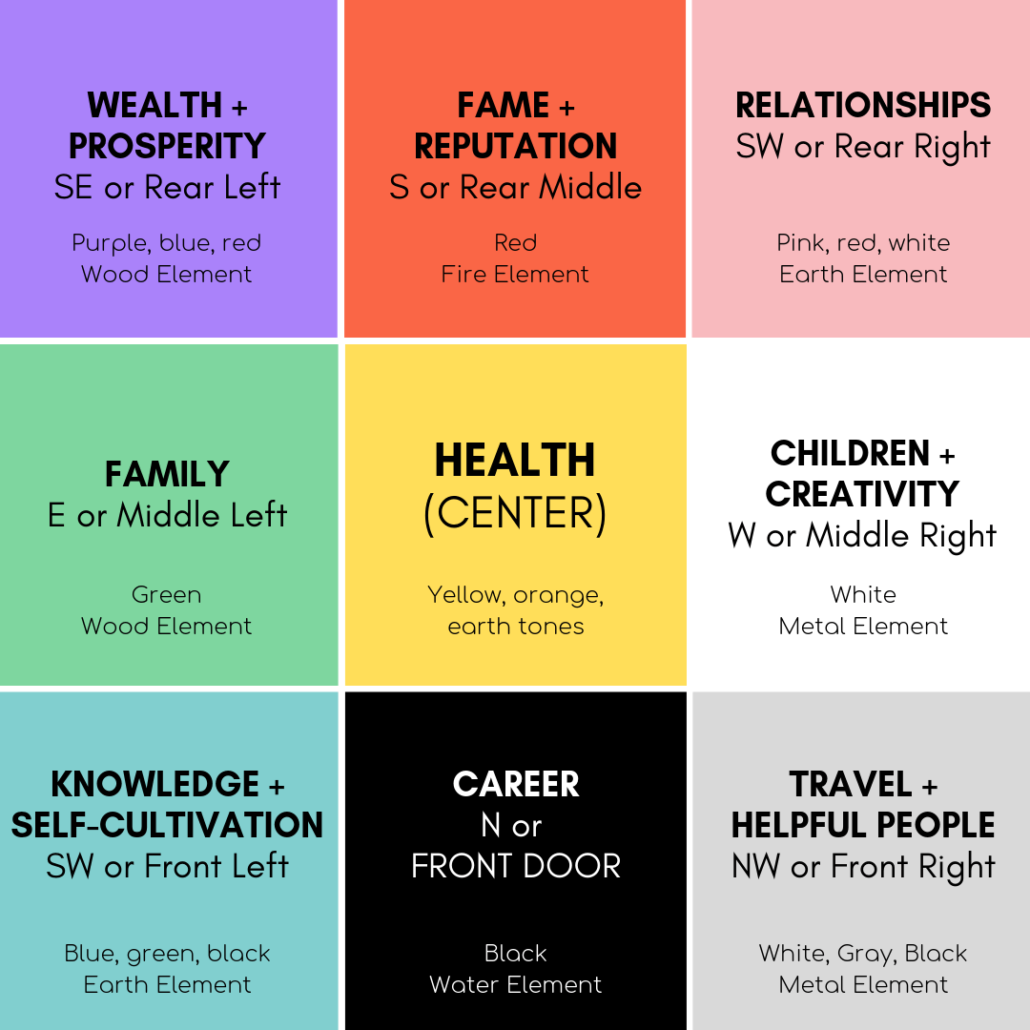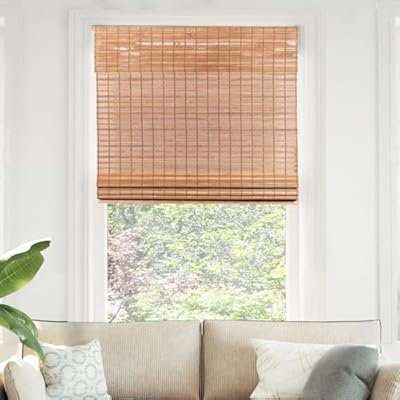
Can Feng Shui help you manifest your deepest dreams and desires? Of course it can, but only if it’s done right!
Feng Shui is an ancient Chinese art and science that aims to balance the energy in a space to promote good health, prosperity, and positive relationships. It’s the physical cornerstone of manifesting. It’s based on the principle that everything is energy, and by adjusting the energy flow in a space by incorporating certain objects, we can influence our lives for the better. If you want to manifest anything, including some easy Feng Shui tips into your home or workspace can help you usher in abundance and prosperity in all areas of your life!
Organize and Clear Clutter

The first and most crucial step in Feng Shui is to clear the clutter from your space. Clutter blocks the flow of energy, making it difficult for new things to enter your life. Start by decluttering your home or workspace, getting rid of anything you no longer need or want. Clear out old paperwork, clothes, and anything else that’s taking up space. You can purchase organizational and storage items like these on Amazon. If you need help, you can also hire a professional organizer.
Clutter and disorganization can block manifesting in several ways:
- Lack of clarity: When your environment is cluttered and disorganized, it can be difficult to gain clarity and focus on your desires and intentions. This lack of clarity can make it challenging to manifest what you truly want.
- Negative energy: Clutter and disorganization can create negative energy in your space, which can affect your mood and mindset. Negative energy can block your ability to manifest positive outcomes.
- Limited space: When your physical space is cluttered, it can create a sense of limitation and restriction. This feeling of being cramped and limited can extend to your mindset, blocking your ability to manifest abundance and prosperity.
- Overwhelm: Clutter and disorganization can create a sense of overwhelm and stress, which can make it difficult to focus on your goals and take the necessary action steps to manifest your desires.
Overall, decluttering and organizing your environment can help clear your mind, create a more positive energy flow, and provide you with the space and clarity needed to successfully manifest your desires.
Create a Welcoming Entryway

In feng shui, the entryway to your front door is considered to be one of the most important areas of your home, as it is the first point of contact for chi, or life force energy, to enter your space. A clean and welcoming entryway is important in feng shui for several reasons:
- Inviting energy: A clean and well-maintained entryway creates a welcoming atmosphere for the flow of positive chi energy. This energy is said to enter your home through the front door, and a cluttered or dirty entryway can block the flow of this energy, causing stagnation and a lack of vitality.
- Positive first impression: A well-organized and visually appealing entryway sets a positive tone for visitors and creates a sense of harmony and balance in the space. This can make guests feel more at ease and comfortable in your home.
- Symbolic importance: In feng shui, the entryway represents the mouth of your home, and as such, it is considered to be a symbol of abundance and prosperity. A clean and welcoming entryway is believed to attract positive energy and opportunities, while a cluttered and neglected entryway can lead to missed opportunities and financial difficulties.
Overall, having a clean and welcoming entryway is considered to be an important aspect of feng shui, as it sets the tone for the rest of your home and can have a significant impact on the flow of positive energy and opportunities in your life.
Use Colors Strategically

In Feng Shui, colors are believed to have a significant impact on the energy flow or “chi” within a space. Each color is associated with a specific element, and by using colors that harmonize with the desired energy of a space, you can create a more balanced and harmonious environment.
Here are some examples of the different colors and their associated elements:
Red – Fire Element: Red is considered a high-energy color and is associated with passion, excitement, and warmth. It can be used in areas where you want to create more energy and activity, such as the living room or dining room.
Blue – Water Element: Blue is a calming color that is associated with peace, tranquility, and serenity. It can be used in areas where you want to promote relaxation, such as the bedroom or bathroom.
Green – Wood Element: Green is associated with growth, renewal, and vitality. It can be used in areas where you want to encourage health, abundance, and creativity, such as the kitchen or home office.
Yellow – Earth Element: Yellow is associated with stability, grounding, and nourishment. It can be used in areas where you want to promote a sense of comfort and security, such as the entryway or family room.
White – Metal Element: White is associated with purity, clarity, and precision. It can be used in areas where you want to promote a sense of calmness and clarity, such as the study or meditation room.
By using colors that harmonize with the desired energy of a space, you can create a more balanced and harmonious environment, which is essential to achieving good Feng Shui. However, it’s important to note that color is just one aspect of Feng Shui, and there are many other factors to consider when creating a harmonious living space.
Balance the Five Elements

In Feng Shui, there are five elements: water, wood, fire, earth, and metal. Balancing these elements in your space can help promote positive energy flow. Incorporate these elements into your decor with items like a water feature, wind spinner or chimes, a wooden desk, a metal sculpture, or plants.
To balance the elements in feng shui, you can use a variety of techniques, including:
- Add natural elements: Incorporating natural elements like plants, rocks, and water features into your space can help balance the elements. For example, adding plants can bring the wood element, while a water feature can bring the water element.
- Use shapes: Each element is also associated with specific shapes. For example, rectangles and columns represent wood, triangles, and pyramids represent fire, squares and flat surfaces represent earth, circles, and arches represent metal, and wavy shapes represent water. Incorporating these shapes in appropriate ways can help balance the elements.
- Use the bagua map: The bagua map is a tool used in feng shui to map out the different areas of a space and associate them with different aspects of life. By using the bagua map, you can identify which areas of your space need more or less of a certain element to achieve balance.

Balancing the elements in feng shui involves creating a space that feels harmonious and supports your well-being. By incorporating the principles of feng shui into your space, you can create a more balanced and supportive environment for yourself.
Incorporate Natural Light

Natural light has a powerful effect on our energy levels and can lift our moods. Open up your curtains and blinds to let in as much natural light as possible. If you don’t have access to natural light, use full-spectrum light bulbs to simulate it. And if you have burned-out light bulbs, change them. A dead light bulb equals dead energy.
In Feng Shui, natural light is considered an important element because it is believed to have a positive impact on the energy flow or chi within a space. Natural light can bring in positive energy and create a sense of openness and vibrancy in a room.
Here are some reasons why natural light is important in Feng Shui:
- Enhances positive energy flow: Natural light is said to enhance the flow of positive energy or chi throughout a space, which can promote well-being, prosperity, and harmony.
- Boosts mood and productivity: Natural light can improve our mood and increase productivity. Exposure to natural light can help regulate our circadian rhythm, leading to better sleep patterns and increased energy during the day.
- Balances the elements: In Feng Shui, the five elements (fire, earth, metal, water, and wood) are believed to interact with each other to create balance and harmony. Natural light is associated with the fire element, which can balance the other elements in a space.
- Creates a connection with nature: Natural light can help create a connection with nature, which is an important aspect of Feng Shui. This connection can bring a sense of calm and serenity to a space.
Natural light is considered an essential element in Feng Shui because it can enhance the energy flow, boost mood and productivity, balance the elements, and create a connection with nature.
Position Furniture Thoughtfully

The placement of your furniture can affect the energy flow in your space. Avoid placing furniture in front of doors or blocking pathways. Position your furniture so that you have a clear view of the room and can see who’s entering. If you’re wanting to attract people into your life, like a new partner, make sure they have places to sit or sleep in your home.
Here are some key principles of furniture placement in feng shui:
- Balance: The arrangement of furniture should create a balanced and harmonious flow of energy. Avoid placing all of your furniture on one side of the room or in one corner, as this can create an unbalanced and stagnant energy flow.
- Functionality: Arrange your furniture in a way that promotes a functional and comfortable space. Make sure that your furniture allows for ease of movement and doesn’t create any obstacles or barriers.
- Proportion: Ensure that your furniture is in proportion to the size of the room. Avoid using oversized furniture in small spaces or vice versa, as this can create an unbalanced energy flow.
- Placement: Place your furniture in a way that promotes a clear and open pathway throughout the room. Avoid placing furniture in areas that block doorways or windows, as this can disrupt the natural flow of energy.
- Colors: Consider the colors of your furniture when arranging your space. Use colors that promote a sense of calm and relaxation, such as soft blues, greens, and neutrals.
By following these principles, you can create a balanced and harmonious space that promotes positive energy flow and enhances your overall well-being.
Add Plants

Plants bring life and energy to any space. They purify the air, improve our mood, and can even help reduce stress. Choose plants that are easy to care for, and place them in areas where you spend the most time. If you’re wanting to attract financial abundance, place a money tree or two in your house.
Additionally, different types of plants are believed to have specific properties that can affect different areas of one’s life. For example, the lucky bamboo plant is often used in feng shui to attract wealth and good fortune, while the snake plant is believed to have a purifying effect and can help remove negative energy from a space.
Plants are also seen as a symbol of growth, vitality, and abundance. They are thought to promote harmony and balance in the environment and can help create a sense of connection to nature.
Incorporating plants into your living or work space can be a simple, affordable, and effective way to enhance the positive energy in your surroundings, which can lead to a more harmonious and prosperous life.
Incorporate Artwork and Decor
Artwork and decor can influence our mood and energy levels. Choose pieces that inspire you, make you feel happy and calm, and align with your intentions. Avoid artwork that depicts negative or violent images.
Here are some ways in which art and home decor can impact Feng Shui:
- Color: Again, using colors that correspond to the five elements (wood, fire, earth, metal, and water) can help balance the energy in a room. For example, adding artwork or decor that features shades of blue or black can represent the water element, which is associated with calmness, tranquility, and abundance.
- Symbols and Images: Artwork and decor can feature symbols and images that are meaningful in Feng Shui. For example, using images of lotus flowers can represent purity and enlightenment, while images of the dragon can symbolize strength and protection.
- Placement: The placement of artwork and decor is crucial in Feng Shui. The energy flow in a room can be affected by the placement of objects, so it is important to consider this when placing art and decor. For example, placing a piece of artwork in the center of a room can represent the heart of the home and promote a sense of balance and harmony.
- Materials: The materials used in art and decor can also impact the energy flow in a space. Using natural materials like wood and stone can promote a sense of groundedness and stability, while metal can symbolize strength and focus.
Including art and home decor that is meaningful and balanced can help create a positive and harmonious atmosphere in a space according to Feng Shui principles.
Keep Your Space Clean

A clean space promotes positive energy flow. Make sure to regularly clean your home or workspace, including floors, surfaces, and objects. Use natural cleaning products to avoid harsh chemicals.
Some of the reasons why cleanliness is important in Feng Shui include:
- Promoting good health: A clean home is free of dust, dirt, and other pollutants that can cause allergies, respiratory problems, and other health issues.
- Attracting positive energy: A clean and tidy home is more inviting and welcoming to positive energy, promoting prosperity, success, and happiness.
- Reducing stress: A cluttered and disorganized home can create a sense of chaos and stress, while a clean and organized home can help you feel calmer and in control.
- Improving relationships: A clean home can create a more harmonious and peaceful environment, which can improve your relationships with family members and loved ones.
Overall, keeping your home clean and tidy is an important aspect of Feng Shui as it can have a significant impact on your physical, emotional, and spiritual well-being.
Use Aromatherapy

Aromatherapy can have a powerful effect on our emotions and energy levels. Use essential oils that align with your intentions, such as lavender for relaxation, peppermint for energy, or citrus for creativity. Place a diffuser in your space, or use a spray bottle to mist the air with your chosen scent.
Aromatherapy and essential oils are often used in conjunction with Feng Shui to enhance the flow of positive energy. In Feng Shui, each area of a room or building is associated with one of the five elements: wood, fire, earth, metal, and water. Each of these elements is also associated with specific scents, so using essential oils that correspond to each element can help balance the energy in a space.
For example, wood is associated with scents like cedarwood and sandalwood, which are believed to promote growth and vitality. Fire is associated with scents like cinnamon and peppermint, which are believed to increase energy and passion. Earth is related to scents like patchouli and vetiver, which are believed to promote stability and grounding. Metal is related to scents like eucalyptus and tea tree, which are believed to promote clarity and focus. Water is associated with scents like lavender and chamomile, which are believed to promote relaxation and calmness.
Incorporating these 10 easy Feng Shui tips into your home or workspace can help you manifest anything you want by creating space to allow your manifestations in, and by raising your vibe to increase your point of attraction. By clearing clutter, using colors strategically, balancing the five elements, incorporating natural light, positioning furniture thoughtfully, adding plants, incorporating artwork and decor, keeping your space clean, and using aromatherapy, you can create a space that promotes positive energy flow and helps you achieve and attract your heart’s desires!


Leave a Reply